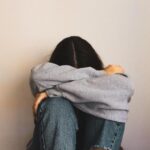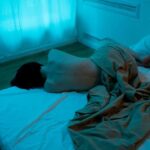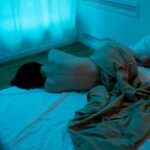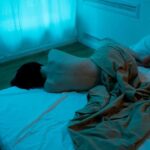Have you noticed more hair on your brush lately? You’re not alone. Hair loss linked to women’s sleep problems is a growing concern that affects countless women, especially those over 30. Struggling with restless nights and fatigue can take a toll, not just on your sleep but also on your hair health. In this article, we will delve into the reasons behind this connection and explore ways to reclaim your vibrant locks while improving your sleep quality.
Understanding the Connection Between Sleep and Hair Loss
Many women notice changes in their hair as they age, particularly after 30. One surprising link could be a lack of quality sleep. Studies indicate that sleep disturbances may affect hair health, leading to thinning or loss. When you don’t get enough rest, your body struggles to perform essential functions, including hair regeneration. Understanding how sleep impacts hair loss may help you take proactive steps toward restoration.
Common Sleep Problems Women Face After 30
Women over 30 often face unique sleep challenges. Common issues include:
- Insomnia: Difficulty falling or staying asleep due to hormonal changes or stress.
- Sleep Apnea: Interrupted breathing during sleep, often linked to weight gain or hormonal fluctuations.
- Restless Leg Syndrome: A desire to move your legs, making it hard to relax and sleep.
- Night Sweats: Hot flashes that disrupt sleep due to hormonal changes during menopause.
If you recognize any of these issues, you’re not alone. Many women report these problems, often feeling overwhelmed and fatigued. These sleep disturbances can contribute to hair loss, creating a frustrating cycle.
The Role of Hormones in Sleep and Hair Health
Hormonal shifts, especially around menopause, can impact your sleep patterns and hair growth. Estrogen, a hormone that promotes healthy hair, tends to decrease as women age. This decline can lead to hair thinning and sleep problems. Cortisol levels, or stress hormones, might also rise with inadequate sleep, further exacerbating hair loss.
By addressing your hormone levels, you may improve both your sleep quality and hair health. Simple lifestyle changes or natural supplements can provide relief.
Signs of Hair Loss You Shouldn’t Ignore
Noticing a change in your hair? It’s crucial to recognize warning signs that could indicate a more significant issue. Some signs include:
- Excessive Shedding: Losing more hair than usual during washing or brushing.
- Thinning Areas: Observing bald spots or thinning patches, especially around the crown or hairline.
- Changes in Texture: Hair that feels finer or is breaking easily.
If you’re facing these symptoms, it may be worth exploring the connection between your sleep patterns and hair health. You deserve to feel confident about your hair.
Natural Remedies for Better Sleep and Hair Restoration
Feeling overwhelmed? Natural remedies can help promote relaxation and boost hair health. Consider these options:
- Herbal Teas: Chamomile or valerian root can help soothe your mind before bed.
- Essential Oils: Lavender or rosemary oil not only promotes relaxation but can also enhance circulation for hair growth.
- Mindfulness Practices: Yoga or meditation are fantastic for reducing stress levels while improving sleep quality.
These remedies are simple to integrate into your daily routine. By focusing on relaxation, you’re addressing both sleep and hair-related issues.
Emotional Well-being: Its Impact on Sleep and Hair
Emotional health is often overlooked, but it plays a significant role in sleep quality and hair health. Issues such as anxiety or depression can prevent restful sleep, which in turn worsens hair loss. Acknowledging emotional distress and seeking support can be pivotal in breaking this cycle.
Engaging in therapy, talking with loved ones, or practicing self-care rituals can help you manage stress. Making your well-being a priority can transform how you feel, impacting both your sleep and hair.
Nutritional Considerations for Healthy Hair and Sleep
What you eat has a profound effect on your body, including your hair and sleep. Consider incorporating the following into your diet:
- Omega-3 Fatty Acids: Found in fish, flaxseeds, and walnuts, these support healthy hair and reduce inflammation.
- Protein: Hair is made of protein. Ensure you’re consuming enough from sources like chicken, beans, or dairy.
- Magnesium: This mineral promotes relaxation. Foods like spinach, almonds, and bananas are great choices.
A balanced diet not only nourishes your hair but also enhances your overall health, leading to better sleep.
How Stress Worsens Hair Loss and Sleep Issues
Stress is a common adversary for women, particularly those navigating life milestones or changes. It can lead to both hair loss and sleep disturbances. When the body’s stress response is triggered, it can halt the hair growth cycle and make it difficult to unwind at night.
Practicing stress management techniques, such as deep breathing exercises or journaling, can counteract these effects. By minimizing stress, you’ll be taking a step towards healthier hair and restful nights.
Practical Tips to Improve Your Sleep Quality
Looking for ways to enhance your sleep? Here are some practical tips:
- Establish a Sleep Routine: Go to bed and wake up at the same time every day to regulate your body clock.
- Create a Relaxing Environment: Dim the lights and minimize noise to signal to your body that it’s time to wind down.
- Limit Screen Time: Avoid screens for at least an hour before bed, as the blue light can interfere with melatonin production.
Implementing these changes can help you achieve better sleep consistency.
Empowering Yourself: Steps to Combat Hair Loss
Taking control of your hair health and sleep challenges is empowering. Here are simple steps to put into action:
- Educate yourself on the causes of hair loss and sleep issues.
- Prioritize self-care, including stress management and a balanced diet.
- Consider consulting a healthcare provider to discuss your symptoms and explore options.
Focusing on these steps can lead to remarkable changes. Remember, you are not alone on this journey. Many women have faced similar obstacles and found solutions that work for them.
Feeling stuck? It’s entirely possible to improve your symptoms through thoughtful actions, just like countless others have. Click the button below to discover how women are addressing these issues without heavy medications.







